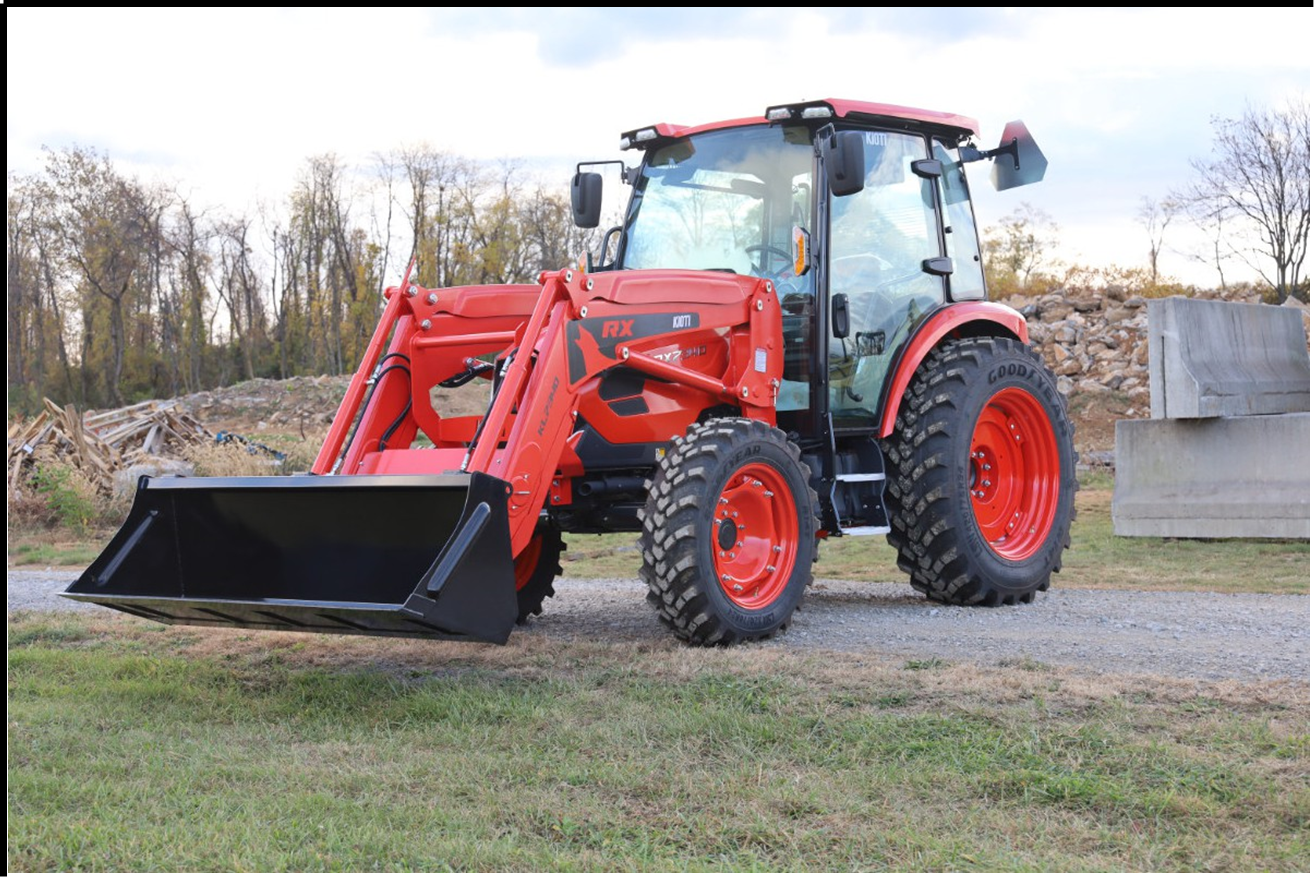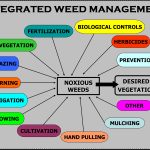Imagine a tractor that thinks for itself, making your farming tasks easier and more efficient. Smart tractors are revolutionizing agriculture by bringing cutting-edge technology right to your fields.
Whether you’re a seasoned farmer or just starting out, understanding the features of these smart machines can transform how you work the land. What if you could save time, reduce costs, and boost your crop yield, all with a few clicks?
Intrigued? You’ll uncover how smart tractors can do all that and more, enhancing your farming operations in ways you never thought possible. Keep reading to discover how this innovation could be the key to unlocking your farm’s true potential.

Advanced Gps Technology
Smart tractors use advanced GPS technology to improve farming efficiency. This technology guides tractors with precise accuracy. Farmers can plant seeds, apply fertilizers, and harvest crops effectively. GPS systems in tractors reduce human error and save time. They also help farmers plan routes and avoid obstacles.
High Precision Navigation
GPS provides tractors with high precision navigation. This ensures straight rows and uniform planting. Farmers can easily monitor their fields and maintain control. The system reduces wastage of seeds and fertilizers. This results in better crop yield and healthier plants.
Real-time Data Collection
Smart tractors gather real-time data through GPS. Farmers receive instant updates about their fields. This data includes soil conditions, crop health, and weather patterns. Quick access to information helps farmers make informed decisions. This leads to improved farm management and productivity.
Efficient Resource Management
GPS technology assists in efficient resource management. Tractors use less fuel and cover more ground. Farmers can track their resource usage easily. This results in reduced costs and increased profits. Smart resource management keeps farms sustainable and eco-friendly.
Enhanced Safety Features
GPS enhances tractor safety features significantly. It prevents collisions with obstacles in the field. Farmers receive alerts about potential hazards instantly. This minimizes accidents and ensures operator safety. GPS systems also help tractors operate in low visibility conditions.
Autonomous Operations
Smart tractors boast features like GPS guidance and automated steering. These tractors reduce human labor and improve precision in farming. Sensors and data analytics optimize planting and harvesting processes efficiently.
The world of agriculture is evolving rapidly, and at the forefront of this change are smart tractors with autonomous operations. Imagine a tractor that can plow, plant, and harvest without needing you in the driver’s seat. These advanced machines are changing the way farming is done, making it more efficient and less labor-intensive. With autonomous operations, smart tractors are more than just machines; they’re your partners in farming. ###How Do Autonomous Operations Work?
Smart tractors use a combination of GPS, sensors, and cameras to navigate fields. They can map out the terrain, identify obstacles, and adjust their path accordingly. This technology allows tractors to operate independently, even in challenging conditions. Picture yourself sipping coffee while your tractor handles the morning plowing. It’s not just a dream—it’s a reality with autonomous technology. ###Benefits Of Autonomous Tractors
Autonomous tractors can work longer hours without breaks. They don’t tire, and their efficiency remains high throughout the day. This means more work done in less time. They also reduce human error. Imagine the precision of planting seeds in perfectly straight lines without any manual effort. This accuracy can lead to better crop yields and ultimately more profit for you. ###Safety Features In Autonomous Operations
Safety is a top priority. These tractors are equipped with sensors that detect and avoid obstacles, ensuring they don’t collide with anything in the field. They can even stop automatically if they sense something unexpected. Knowing that your investment is safeguarded gives you peace of mind. Wouldn’t it be comforting to know that your equipment can protect itself and your crops? ###Real-life Application: A Farmer’s Experience
John, a farmer from Iowa, shared his experience. He was initially skeptical about the technology. But after witnessing the precision and time-saving benefits firsthand, he couldn’t imagine going back. His tractors now handle routine tasks, freeing him up for other farm management duties. John’s story is a testament to how embracing technology can simplify your work and improve productivity. ###Are You Ready For The Future?
Autonomous tractors are paving the way for a future where farming is smarter and more efficient. Are you ready to embrace this technology and see how it can transform your farming operations? As you think about the future, consider how these intelligent machines can make your life easier. Could this be the change your farm needs to thrive?Precision Agriculture Tools
Smart tractors bring precision to farming with GPS-guided steering and real-time data analysis. These features help farmers plant seeds accurately, monitor crop health, and save on fuel. Enhanced connectivity allows seamless integration with other farm equipment, improving overall efficiency.
Precision agriculture tools are transforming the way we farm, making it smarter and more efficient. These tools, integrated into smart tractors, enable farmers to optimize their resources, reduce waste, and increase yields. Imagine adjusting your tractor’s settings from your smartphone or tablet while sipping your morning coffee. This is the future of farming, and it’s happening now.Gps Guidance Systems
Smart tractors use GPS guidance systems to ensure precise navigation across fields. This technology minimizes overlap and skips during planting, fertilizing, and harvesting. You save time and reduce fuel costs. Have you ever wondered how much time you waste correcting course? With GPS guidance, you stay on track every time.Variable Rate Technology (vrt)
Variable Rate Technology allows you to adjust the application rates of seeds, fertilizers, and pesticides. This precision helps you apply the right amount at the right place. It’s like having a personalized farming assistant. You can maximize crop yield while minimizing costs.Soil Monitoring Sensors
Soil monitoring sensors provide real-time data on soil conditions such as moisture, temperature, and nutrients. This information helps you make informed decisions about irrigation and fertilization. Imagine knowing exactly when your crops need watering. These sensors help you achieve that level of precision.Telematics Systems
Telematics systems collect and transmit data on tractor performance and field conditions. You can monitor your equipment’s health and efficiency remotely. Ever had a tractor breakdown in the middle of a busy day? With telematics, you can predict and prevent such issues, saving you time and headaches.Automated Steering Systems
Automated steering systems keep your tractor on the right path with minimal input. This reduces operator fatigue and improves accuracy. Think about the freedom of focusing on strategic decisions rather than steering. Automated systems handle the repetitive tasks, so you can concentrate on what truly matters. These precision agriculture tools are not just about technology; they are about transforming your farming practices for better productivity and sustainability. Are you ready to embrace the future of farming? Your smart tractor is the key.
Real-time Data Analytics
Smart tractors offer real-time data analytics to optimize farming. They monitor soil conditions and adjust planting depth. This helps farmers increase crop yield efficiently.
In the world of modern agriculture, smart tractors have become a game-changer. One of their most impressive features is real-time data analytics. Imagine being able to make decisions on the fly, with accurate data at your fingertips. This is no longer a dream but a reality for many farmers using smart tractors. Let’s dive into how real-time data analytics is transforming farming.Understanding Real-time Data Analytics
Real-time data analytics allows you to collect information as it happens. This means you can respond quickly to changes in the field. Whether it’s adjusting the water levels or altering the fertilizer mix, you can make these changes instantly. This immediate feedback loop can dramatically increase efficiency and crop yield.The Role Of Sensors And Iot
Smart tractors are equipped with various sensors and IoT devices. These tools capture data on soil conditions, weather, and crop health. With this information, your tractor can suggest optimal planting times or the best routes for harvesting. It’s like having a personal assistant that knows your farm inside out.Benefits Of Real-time Data
The advantages of real-time data are significant. You can reduce waste by applying resources precisely where needed. This not only saves money but also helps the environment. Additionally, you can monitor equipment health to prevent costly breakdowns.Making Data-driven Decisions
Having access to real-time data empowers you to make informed decisions. You can identify trends that might not be visible to the naked eye. This data-driven approach allows for strategic planning, ensuring long-term success. Are you ready to let data drive your farming success?Challenges And Considerations
Despite its benefits, real-time data analytics isn’t without challenges. Data overload can be overwhelming if not managed properly. You’ll need to ensure your systems are secure to protect sensitive information. How will you address these challenges to maximize the potential of smart tractors? Integrating real-time data analytics into your farming routine can revolutionize how you manage your crops and resources. With the right tools and mindset, you can transform challenges into opportunities for growth. Are you ready to embrace this technology and take your farming to new heights?
Conclusion
Smart tractors offer many useful features for farmers today. They help increase efficiency on the field. Farmers can save time with automated processes. GPS technology ensures precise planting and harvesting. Data collection aids better decision-making. Energy consumption is reduced with smart power management.
These tractors adapt to changing weather conditions. Farmers now have better control and convenience. Smart tractors support sustainable farming practices. They represent the future of agriculture. Investing in them can benefit farm productivity. Embrace this technology for a more efficient farm operation.


